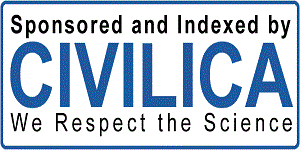عوامل ژنتیکی دخیل درسرطان کلورکتال
* رامین شکریپور1، رامش رنجبر1
- گروه بیوتکنولوژی، دانشکده علوم و فناوری زیستی، دانشگاه شهید اشرفی اصفهانی، اصفهان، ایران
* پست الکترونیک مسئول مکاتبات: [email protected]
چکیده
زمینه و هدف: سرطان کلورکتال یا رودهی بزرگ دومین سرطان کشنده و سومین سرطان شایع در جهان بعد از سرطان پروستات در مردان، سرطان پستان در زنان و سرطان ریه میباشد، تشخیص داده شده است که این سرطان در مردان شیوع بیشتری نسبت به زنان دارد. سرطان کلورکتال از معدود سرطانهایی است که غربالگری، تشخیص زودرس و درمان به موقع میتواند به طور قابل توجهی آن را کنترل کند. در نتیجه آشنایی با این سرطان، شناسایی عوامل ایجاد کننده، تشخیص، درمان و… بسیار حائز اهمیت است که در این مقاله به این موضوع پرداخته شده است.
روش بررسی: این پژوهش یک مطالعهی مروری است و در این پژوهش از بانکهای اطلاعاتی ایرانی و خارجی همچون PUBMED، NCBI و … برای جمعآوری اطلاعات استفاده شده است.
یافتهها: طبق یافتههای به دست آمده افزایش سرطان رودهی بزرگ در کشورهای پیشرفته در حال افزایش است و این موضوع ناشی از افزایش روزافزون جمعیت، عادات غذایی نامطلوب مدرن و افزایش عوامل خطرزا مانند سیگار کشیدن، ورزش بدنی کم و چاقی است.
نتیجهگیری: طبق مطالعات و مستندات به دست آمده عوامل محیطی و ژنتیکی نقش عمدهای در پاتوژنز سرطان رودهی بزرگ دارند. همچنین نقش تغذیه در سرطان روده مورد بررسی قرار گرفته است و نتایج نشان میدهد که تغذیه عامل مؤثر در ابتلا و یا محافظت در برابر این سرطان به حساب میآید. همچنین میزان مرگ و میر ناشی از سرطان رودهی بزرگ به دلیل اقدامات مؤثر غربالگری سرطان کاهش یافته است، در نتیجه رعایت عوامل محیطی مثل تغذیه در پیشگیری و غربالگریها در کاهش مرگ و میر ناشی از این سرطان اهمیت دارد.
کلمات کلیدی: سرطان کلورکتال، شیوع سرطان، مطالعات اپیدمیولوژیک
Genetic factors involved in colorectal cancer
* Ramin Shokripour1, Ramesh Ranjbar
- Department of Biotechnology, Faculty of Biological Sciences and Technology, Shahid Ashrafi University of Isfahan, Isfahan, Iran.
* Correspondence E-mail: [email protected]
Abstract
Background and objective: Colorectal cancer is the second deadliest cancer and the third most common cancer in the world after prostate cancer in men, breast cancer in women and lung cancer, which is more common in men than women. Colorectal cancer is one of the few cancers that screening, early diagnosis and timely treatment can significantly control. Therefore, familiarity with this cancer, identifying the causative agents, diagnosis, treatment, etc. is very important. This article addresses this issue.
Method: This research is a review study and, in this research, Iranian and foreign databases such as PUBMED, NCBI, etc. have been used to collect information.
Results: According to the findings, the increase in colorectal cancer is increasing in developed countries. This is due to the growing population, modern unfavorable eating habits and increased risk factors such as smoking, low physical activity and obesity.
Conclusion: According to studies and documents, environmental and genetic factors play a major role in the pathogenesis of colon cancer. The role of nutrition in colon cancer has also been studied and the results indicate that it is an effective factor in creating or protecting against this cancer. Also, the mortality rate from colon cancer has decreased due to effective cancer screening measures, so it is important to observe environmental factors such as nutrition in prevention and screening to reduce mortality from this cancer.
Keywords: Colorectal cancer, Cancer prevalence, Epidemiological Studies
1,810 بازدید





